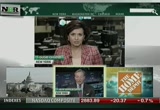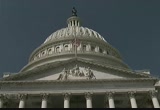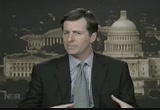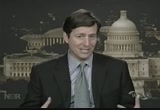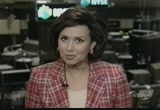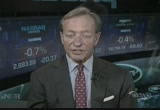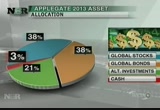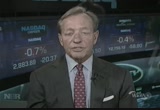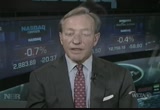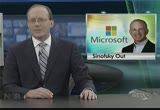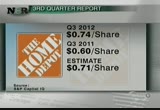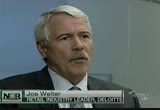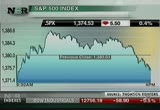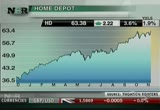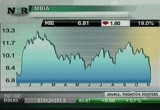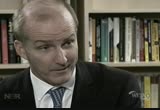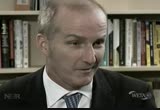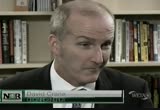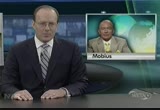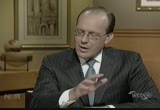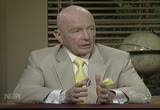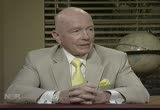tv Nightly Business Report PBS November 13, 2012 6:30pm-7:00pm EST
6:30 pm
preventing the u.s. economy from falling off the fiscal cliff. while washington struggles on a fiscal cliff deal, what should you do about your portfolio? jeff applegate has some answers. he's chief investment officer at morgan stanley smith barney. and home depot hammers home strong gains and lays the foundation for a strong quarter ahead. that and more tonight on "n.b.r." it was another day of cliff- watching here on wall street today. investors and traders are waiting to hear what happens at an important white house meeting on friday between president obama and congressional leaders. they will be talking about ways to solve the so-called "fiscal cliff" dilemma. investors appear cautious about making any big moves until they know whether the cliff will trigger increases in capital gains and dividend taxes. the dow fell almost 59 points, the nasdaq lost 20, and the s&p was down five. meanwhile, in washington, congress returned to work for the first time since september. lawmakers face a long "to-do list," and getting a deal on that fiscal cliff is right at the top. darren gersh reports. >> reporter: it was freshman welcome day in washington.
6:31 pm
senate republican leader mitch mcconnell lost ground in the election, but he posed for the cameras with the three new senators who will be joining his side of the aisle in january. in the house, minority leader nancy pelosi beamed as she presented the new faces adding to democratic ranks in the coming congress. gi given what awaits these new lawmakers in january, you might wonder why they want the job. it's still not clear whether a lame duck session of congress will navigate the expiring tax breaks and automatic spending cuts that make up the fiscal cliff. the president met privately with labor leaders to discuss options for the fiscal cliff. tomorrow, he will caucus with c.e.o.s from companies like wal-mart, g.e. and bank of america. it all leads up to friday when the president sits down with congressional leaders at the white house to begin the real negotiations, and both sides enter those talks claiming a mandate to protect the principals the voters endorsed at the ballot box.
6:32 pm
>> darren gersh is with us tonight from our washington, d.c. bureau, where a week after election day here. was there any progress made by the staffs of the political players during the campaign season? where do we stand? >> the staff is always looking at this as a giant chess game and trying to figure out how they can give their bosses their best move, so the staff have been working. we had a lot of commissions and a lot of efforts to try to solve the budget problems. there is a lot of work done behind the scenes and on paper. a deal could come together pretty quickly. the problem is the principals, the leaders, the people who were elected, they have to come back and decide what they're going to do. they're talking about getting an agreement, but nobody knows how to get that agreement right now. >> tom: it pays to parse language when we're at this point in negotiations for politicians. we're hearing about tax rates and tax revenue. they say no increase on tax rates, but they're
6:33 pm
willing to accept higher tax revenues. what's the difference? >> if you're sitting at home, you think, come on, guys, there is not much difference, make an agreement. really this comes down to a fis so philosophical agreemen. tax rates are the percentage people pay on their income, and it is seen by republicans as the incentive to work and save, and if you raise the rates, people have less incentive to do all of that. and republicans care a lot about incentive. democrats care a lot about fairness. so the higher the rate on higher income, the democrats see as a bedrock principle that the wealthy should pay a little more, as the president says. so this is a battle over principle, basically. >> tom: darren, could this go all the way to new year's eve? >> easily. if they decide it looks like they can get an agreement, and they are just negotiating over the details, they could go right up to january 1st, easily. you know, i remember
6:34 pm
walking out with the senate majority leader years ago, when there was some similar kind of fight over economic policy, and we were walking out, and he had his christmas gifts in a bag, ready to bring, like, to the family party. that's how late they went. so they could go right up to christmas eve or new year's eve. >> tom: they can do it again this time around. darren gersh from our bureau in washington. >> our next guest believes policy-makers can find a resolution on the fiscal taxes and government spending cuts kick in. that is one the predictions in morgan stanley's 2013 outlook. with us now is jeff applegate. jeff, why do you think that congress is going to be able to come through with a deal on this fiscal cliff? >> the political calculus, susie, is very simple. at the end of the day, the physicafis -- fiscal cliff
6:35 pm
threatens to dip the economy back into a depression. so we think that's what will drive a deal. >> susie: the fiscal cliff is in headlines every single day. it probably will continue like this for the next six weeks. how is all of that anxiety going to play out in the markets? >> you've already seen it play out since the election. global equities, actually, were down more than 2%. we didn't have a great day again today. so getting a positive resolution on the fiscal cliff is going to be important for the markets, but it is going to be volatile, and it will not be sorted out soon. so i think you should count on near-term possibly increased volatility in equity markets. >> susie: but you still think that the markets will be up for the year for 2012? >> we do. and that's the view that the fiscal cliff will get resolved in a positive way, and the threat of recession will be removed, and the markets should respond positively to that. and the outlook for 2013 is that the economy is growing, profits are
6:36 pm
growing, and you also have the potential for longer term deficit reduction, and equity is doing even better than going up in line with profit growths and potentially getting price earnings and multiple expansion. >> susie: that is encouraging. and investors are concerned about what they should do to position their portfolios. in your market outlook for 2013 that was released today, you're allocating this -- generally speaking stevspeaking -- global bonds, 38%, alternative investments 28%, and cash only 3%. give us your analysis on this. >> let's start with the last part, cash. if you stay in cash, you're getting a return which is below inflation, and you're not protecting your purchasing power and you're breaking one of the cardinal rules of investing. so it makes sense to move out to more risky, it
6:37 pm
could be equities, and also commodities where you have the potential for a positive post-inflation return and positive after-tax return. >> susie: if you had some decent gains in your stock portfolio this year, 201201 -- 2012, given that you were expecting increases in capital gains and dividend taxes, should you take your profits between now and the end of the year? what do you tell your clients? >> i tell clients everyone's tax situation is different. i also tell them don't let the tax policy decision overwhelm your investment decision. if you have an investment goal, which is multi-year, long-term, which a lot our clients do because they're households, not institutions, and that you shouldn't make any change around the fiscal cliff, which is going to be a short-term event, which we think will turn out with a positive outcome. >> susie: it is a very confusing time for
6:38 pm
investors. overall, what is your best advice for people right now? >> i think the best advice for people is whatever investment policy you thought was appropriate in your portfolio at the beginning of the year, that's what you should adhere to coming into the end of the year, despite the threat of the fiscal cliff. we will get through this. then again, the next opportunity for investors will be next year. the credit agencies are waiting in the wings to potentially downgrade u.s. debt. we think that will help get politicians focused on a credible multi-year deficit reduction plan. if we can get that, then you have the potential for equities to do even better because potentially you get price earnings and multiple expansion. >> susie: very reassuring and encouraging. jeff applegate from morgan stanley, smith barney ne. barney.
6:39 pm
>> reporter: steven sinofsky led the development of the two latest versions of microsoft's most important product, helping revamp the windows division after the troubled release of windows vista. it's work that helped put him in line possibly for the c.e.o.'s office. but instead, sinofsky is out and steve ballmer remains the c.e.o. >> the more broad implication is, windows 8 was just released. this is a product that is supposed to change the future of microsoft, change its fortunes, and now the person behind its development is leaving. that's an ominous sign for investors. >> reporter: another troubling sign is the explosive growth of tablet computers and
6:40 pm
smartphones, stealing traditional desktop computer sales and the $75 licensing fee microsoft receives for every windows p.c. sold. >> microsoft's business model is just fundamentally broken for a mobile age, and that's not something someone like a steven sinofsky leading an engineering team on windows can fix. >> reporter: the stock reaction was negative. microsoft shares fell to their lowest price since january. sinofsky will be replaced by two women who worked with him. he's the second high-level executive to leave a technology giant in as many weeks. the head of apple's iphone software unit left in a management shake-up late last month.
6:41 pm
>> susie: want more evidence that a housing recovery is under way? look no further than home depot's latest earnings report. the home improvement chain released positive third quarter earnings, but it's the company's outlook for the future that is getting the most attention. erika miller reports. ( hammering ) >> reporter: you could say home depot "nailed it," reporting better than expected third quarter earnings. profits rose 23% from a year ago to 74 cents a share. revenues were up nearly 5%. and, remember, the latest results don't even include the sales lift from superstorm sandy. home depot also raised its profit outlook for the year. if housing continues to improve, experts say it's a bullish sign for the rest of the economy. >> now, as we start to see residential investment recovery, that should help other sectors of the economy through demand
6:42 pm
for building materials, through more demand for other products-- furniture, you name it! >> reporter: she's optimistic housing will remain one of the few bright spots in an otherwise sluggish recovery. erika miller, "n.b.r.," new york. >> susie: it was an unhappy earnings story in the third quarter for saks. the upscale department store said sales and profits were hurt by a modest spike in promotions. on top of that, saks expects sales to be flat in the current holiday period because of a slow start to november due to hurricane sandy. noow, trouble at saks underscores new worries spreading throughout the luxury sector about the all important holiday season. suzanne pratt reports. >> reporter: on manhattan's 5th avenue, it's beginning to look a lot like christmas. from jeweler harry winston to bergdorf goodman's department store, luxury retailers are trying to get shoppers in the mood to spend. but this holiday season could be tricky for high-end stores. sure, luxury shoppers are
6:43 pm
feeling more confident because stocks are in decent shape, and the housing sector is building a foundation. still, many are more likely to be aware of the potential threat to the u.s. economy of the fiscal cliff. expectations remain mixed for fancier retailers, but some experts predict the debate in washington over taxes will simply delay holiday purchases made by wealthy americans. >> i would expect that holiday spend won't get impacted as much. some of the larger wealth items, tax planning, estate planning, that's where their focus will be. it may defer some of it because they've been preoccupied. >> reporter: tom jacobsen tracks consumer spending behavior and believes the fiscal cliff will impact shopping patterns. he says in an uncertain economy retailers will need to pay close attention to pricing. >> as the confidence erodes, you
6:44 pm
might need more discounting to sell a luxury good. but that extra discounting won't take away from that good-feeling luxurious. >> reporter: according to a study out today, half of u.s. consumers still plan to buy make a small luxury purchase in the next six months. of those, 53% want specialty food or drinks, 48% are in the mood for luxury clothing, and 48% are looking for expensive personal care items. nevertheless, worries about curtailed luxury spending are already hitting stock prices of high-end retailers. in the last week, shares of tiffany, saks, nordstrom, michael kors and ralph lauren have all lost ground. beyond the fiscal cliff, the stock market is one other potential problem for wealthier shoppers. if stocks extend recent losses into december, there could be fewer gifts under the tree this year. suzanne pratt, "n.b.r.," new york.
6:45 pm
>> susie: now, on the other end of the retail spectrum, t.j.x. companies today boosted its outlook for the holiday season. it now expects to ring up sales of as much as 2%. also today, the company posted third quarter earnings that matched expectations on better than expected sales of $6.5 billion. t.j.x. shares were a top performer, up almost 3%. >> tom: another session of small moves for the major stock indices as the pace of earnings season slows and the focus remains on washington. the s&p 500 had a very narrow trading range of only 17 points. by the closing bell, it had lost just less than 0.5%. trading volume remained ligh just 676 million shares traded on the big board. 1.8 billion moved on the nasdaq. the info technology sector was the hardest hit, down 0.8%, followed by financial and energy groups. now, after the closing bell, the focus was on cicso systems. the internet gear maker reported its quarterly results late today. and those results were two cents
6:46 pm
better than estimates. net sales were up from last year, too, and higher than expected. c-s-c-o has been undergoing a restructuring for the past year, managing uncertain demand for its telecommunications equipment's pinched profit margins. the stock was flat before tonight's earnings report. shares were up about 4% in extended hours trading. now, as erika reported earlier, home depot's strong third quarter earnings and optimistic outlook really helped drive buying interest. today's 3.6% rally came on more than double its usual volume, and takes the stock to its highest price since 1999. but the buyi interest did not extend to home depot's main rival, lowe's. lowe's shares were essentially ghchanged evebu lihesy r tlie aavangthraveol slightly heavier than average. home depot wasn't alone in reporting strong earnings. dick's sporting goods boosted full-year outlook after a better than expected quarter.an shares added almost 5%. saks beat the street with its latest results but warned super- storm sandy will lead to flat
6:47 pm
same store sales this quarter. that may have muted the bulls today, with saks stock up 0.4%. target and wal-mart results on thursday, rather. bank of america made a move today. bank of america made a pre- emptive move today over a fight with mortgage bond insurer m.b.i.a. the two have traded lawsuits over toxic mortgage bonds. bank of america's offer today to buy certain m.b.i.a. bonds would stop m.b.i.a. from changing the terms on those i.o.u.s. bank of america worries changes could mean m.b.i.a's bond insurance is no good. bank of america's offer drove shares of m.b.i.a. down 19% to a new 52-week low. one to watch tomorrow could be facebook. that's when we'll see the biggest lockup period on the shares expire, making some 800 million shares eligible for sale. facebook shares closed the day down 1%. june's i.p.o. price was $3a share. all five of the most actively traded exchange traded products were lower. the worst off was the emerging markets fund, down about 1%.
6:48 pm
an et'sthigrk tma focus." >> susie: all the headlines about the fiscal cliff are worrying c.e.o.s these days. david crane is one of them. he's c.e.o. of nrg energy, the new jersey-based utility. now, like other c.e.o.s, he is concerned about getting a solution. earlier today, i asked him, can it be done in time? >> can it be done in the lame-duck session before the january 1 cliff, i don't think so. but i think everyone is looking for a sign of good faith, (a) that they're working together in a constructive way, and (b)
6:49 pm
that, as most people are saying, put a down payment on dealing with the issue, and then come up with a credible plan to sell it over the next several months. >> susie: david, as you know, many c.e.o.s are going to be meeting with president obama tomorrow at the white house. what would you like to see come out of that meeting? >> the business community generally likes simpson bowls, and i think there was some disappointmt obama administration did not embrace it fully. i think what the business community would like to hear from president obama is sim bowls on testosterone. they want to hear the word "simpson bowls" because that provides a better blueprint than anything out there right now. >> susie: are you finding that all of this uncertainty about the fiscal cliff is affecting your business. >> our business is electricity demand growth, so right now it hasn't yet. but i think the longer they go, and i mean longer
6:50 pm
in terms of weeks and days, without showing signs of having a constructive solution, i think it will impact our business virtually more with every day in a very visible way. it is unusual for me to say that because our business tends to be a very long, long-term business, but this is an immediate crisis. >> susie: why an immediate crisis for your business? are you holding back on making plans for next year? is that it? >> because our business is derivative of other parts of the economy. a chemical plant's decision to go ahead and build will have a big impact on electricity demand in that area. so as other people sit on their hands, you know, because they're waiting for the government to do something, then our business will be affected. >> susie: i know you are a big believer in renewable energy and solar power and wind power, and president obama talked a lot about green energy power during the election. do you think he will come through on those promises? >> the obama administration did a lot during the first term to support renewables, and i would like to see them do
6:51 pm
a lot in the second term. that doesn't volve a lot of government money, but solar power has made huge strides in becoming cost-effective. i expect we'll make a lot more solar investment with the support of the federal government and the support of the state and local governments as well. >> susie: as you know, many of the tax credits and government support will be expiring very, very soon. and given the battles over the budget and the fiscal cliff, unlikely that they're going to renew these -- >> it is absolutely unlikely. we expect no more money from the federal government for solar power, but the cost of solar has dropped so much, and something that people haven't talked about, what is going to be the costs in terms of your utility bill to rebuild the power system. solar is now competitive with the retail price of electricity without government subsidy. >> susie: i would like to get your thoughts on this recent news that the u.s. will be energy-independent by the year 2030, and the world's
6:52 pm
top oil producer. do you ever see that happening? >> i think it is very possible. the u.s. has so many natural resources, and energy independent, i think, is completely doable. ing sound policystion ofcy framework to make sure we achieve that. expected to unveil its new ruleings this week. chinese party congress wraps up in beijing as the country makes its once in a decade change in leadership. we spoke with mark mobius from templeton about what the changes mean for u.s. investors. >> they focused on this new five-year plan, which is turning this battleship around towards the consumer economy. >> tom: so instead of being externally focused, selling chinese goods two the world, looking in wards and trying to stoke
6:53 pm
domestic consumption? >> exactly. the totally amount of exports and in supports, ports,y the way is going up. now it is over 9%. so they're importing a lot more and exports are expanding. but at the end of the day, this new leadership has the job of turning this huge ship towards a consumer society, so they're less dependent upon exports and they grow. >> tom: that's going to mean worker rights, labor issues, rising wages in an era with ultra low interest rates worldwide. does that mean inflation? >> at the end of the day, it will, unless they can increase productivity, which they're working on. if you look at the makeup of china's exports, you're going to see more and more high-tech goods. i mean, i have a company like huawei, which is trying to get into the del com's business in the u.s., and this is a high-tech company,
6:54 pm
competing with ericsson and all of the other major leaders around the worl. >> tom: how do the leadership change in china impact the economic relationship they have with the united states, and the bilateral relationship they need. >> this is very important because with japan, and the islands off the coast, the u.s. relationship is going to be very critical, and the attitude of the new leadership in this regard is going to be critical. the good news is that this leadership is very modern. they're young. they seem to be quite flexible. at the same time, with obama having won, you have a more flexible foreign policy. >> uh-huh. >> so the prognosis so far looks positive because you have these two leadership groups who more or less are willing to
6:55 pm
accommodate, negotiate, and so forth and so on. but the problem in asia, of course, is that you have some very stubborn views. in the countries, japan, korea, vietnam, philippines, they're all disputing these islands, and it can get out of control. >> tom: mark, how long have you been investing in china or looking at china for capital? >> it has been over 30 years. >> tom: how would you describe today's opportunity over the course of that generation of vistain investing time? >> it is incredible. ever day you see opportunities in china. the demand for services, for products, you name it. they hunger for all of these things, and they will increase. it will not decrease, because of the wages going up. >> tom: we will have more of our conversation with mark mobius next week on thanksgiving night. he tells us globalization has
6:56 pm
made the u.s. fiscal cliff a worldwide issue for investors. >> susie: that's "nightly business report" for tuesday, november 13. have a great evening, everyone, and thanks for watching. we'll see you online at www.nbr.com and back here tomorrow night. captioning sponsored by wpbt captioned by media access group at wgbh access.wgbh.org o
141 Views
IN COLLECTIONS
WETA (PBS) Television Archive
Television Archive  Television Archive News Search Service
Television Archive News Search Service 
Uploaded by TV Archive on

 Live Music Archive
Live Music Archive Librivox Free Audio
Librivox Free Audio Metropolitan Museum
Metropolitan Museum Cleveland Museum of Art
Cleveland Museum of Art Internet Arcade
Internet Arcade Console Living Room
Console Living Room Books to Borrow
Books to Borrow Open Library
Open Library TV News
TV News Understanding 9/11
Understanding 9/11